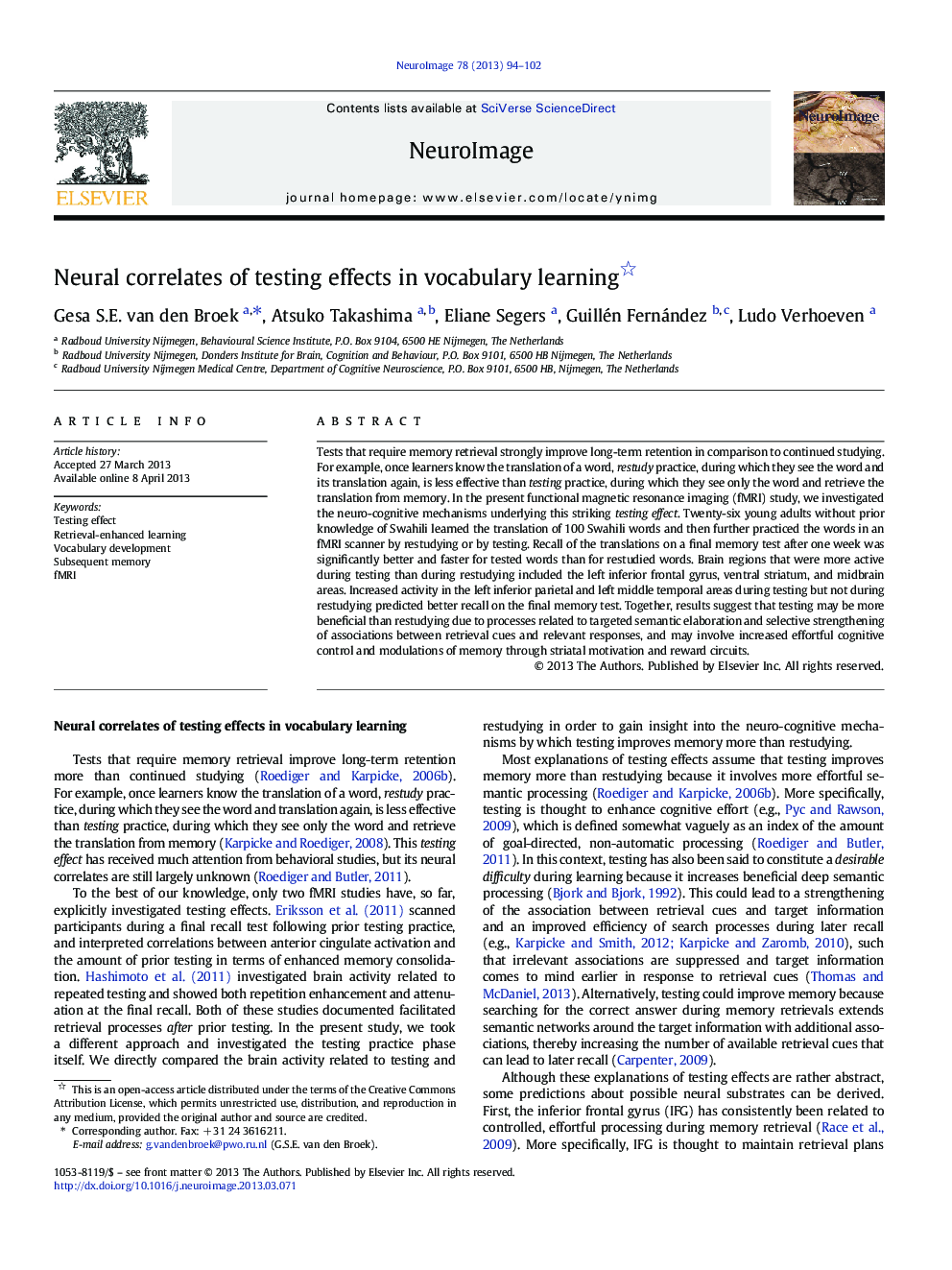| کد مقاله | کد نشریه | سال انتشار | مقاله انگلیسی | نسخه تمام متن |
|---|---|---|---|---|
| 6029204 | 1580926 | 2013 | 9 صفحه PDF | دانلود رایگان |
عنوان انگلیسی مقاله ISI
Neural correlates of testing effects in vocabulary learning
ترجمه فارسی عنوان
همبستگی عصبی اثرات تست در یادگیری واژگان
دانلود مقاله + سفارش ترجمه
دانلود مقاله ISI انگلیسی
رایگان برای ایرانیان
کلمات کلیدی
موضوعات مرتبط
علوم زیستی و بیوفناوری
علم عصب شناسی
علوم اعصاب شناختی
چکیده انگلیسی
Tests that require memory retrieval strongly improve long-term retention in comparison to continued studying. For example, once learners know the translation of a word, restudy practice, during which they see the word and its translation again, is less effective than testing practice, during which they see only the word and retrieve the translation from memory. In the present functional magnetic resonance imaging (fMRI) study, we investigated the neuro-cognitive mechanisms underlying this striking testing effect. Twenty-six young adults without prior knowledge of Swahili learned the translation of 100 Swahili words and then further practiced the words in an fMRI scanner by restudying or by testing. Recall of the translations on a final memory test after one week was significantly better and faster for tested words than for restudied words. Brain regions that were more active during testing than during restudying included the left inferior frontal gyrus, ventral striatum, and midbrain areas. Increased activity in the left inferior parietal and left middle temporal areas during testing but not during restudying predicted better recall on the final memory test. Together, results suggest that testing may be more beneficial than restudying due to processes related to targeted semantic elaboration and selective strengthening of associations between retrieval cues and relevant responses, and may involve increased effortful cognitive control and modulations of memory through striatal motivation and reward circuits.
ناشر
Database: Elsevier - ScienceDirect (ساینس دایرکت)
Journal: NeuroImage - Volume 78, September 2013, Pages 94-102
Journal: NeuroImage - Volume 78, September 2013, Pages 94-102
نویسندگان
Gesa S.E. van den Broek, Atsuko Takashima, Eliane Segers, Guillén Fernández, Ludo Verhoeven,
